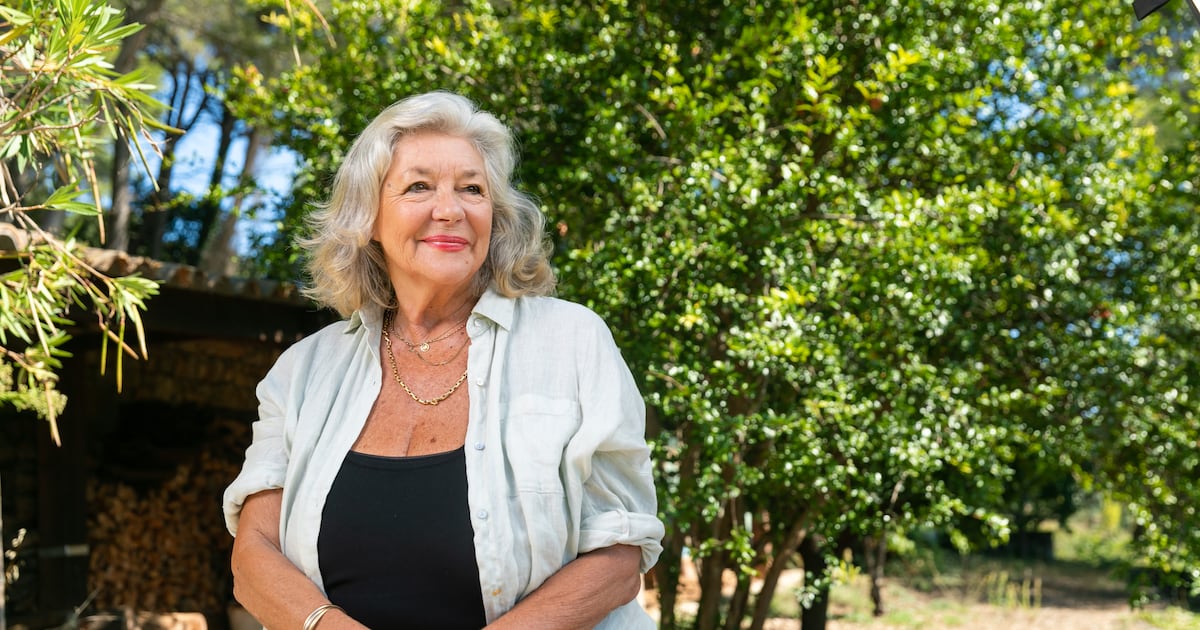Tell us about your new novel, One Summer in Provence.
Celia gave up her son at birth. Out of the blue, 47 years later, the son makes contact. One Summer in Provence is a woman’s journey towards finding a family, belonging, overcoming betrayal, facing up to her past and reconnecting with the child she renounced at birth.
Is the subject matter of a long-lost son particularly charged, given how movingly you have addressed the struggle to have your own child?
I am sure that my childlessness has affected my writing. When I began this novel I didn’t know who David (the long-lost son) was, whether he was genuine or a pretender. It is very hard to understand the deep emotional mechanics of writing, the impulses that push the narrative of a story. Probably best not to try.
Tell us about your series of bestselling memoirs about managing an olive farm in Provence.
I fell in love with a Frenchman. He asked me to marry him on our first date. We purchased an overgrown olive farm in the south of France. Once the land was cut back, we discovered centenarian olive trees surviving on drystone-wall terraces. Our olive oil is fabulous, and organic. These Olive Farm memoirs are many love stories rolled into one: the Mediterranean, olive farming, a man, a house, France …
You made your name as an actor, perhaps most memorably as Helen Herriot in the BBC series, All Creatures Great and Small. What is your most abiding memory of it? What were your other highlights?
All Creatures Great and Small was a gift to me as a young actress. I had no idea it would be such a calling card. We had huge fun on location; we were all great friends. No unkindnesses, no rivalry. Working with Max Von Sydow on the film Father, playing father and daughter, winning a best screen actress award for my performance. Three months in Melbourne with Max, a truly fine, generous actor, was very special.
Who or what made you a writer?
Reading transports, as we know. I have a traveller’s soul. No one influence made me a writer.
The experience of the starlet Marguerite in your novel The Lost Girl was based on your sexual assault by Elia Kazan while auditioning for the lead role in his film The Last Tycoon (1976).
It was decades before I was able to open up about Kazan’s appalling behaviour towards me. I first spoke about this deeply painful experience at the West Cork Literary Festival several months before the #MeToo movement took off.
You were born in London but your mother Phyllis McCormack was an Irish nurse and you bought a second home here. One of your books is called The Hunger: The Diary of Phyllis McCormack, Ireland, 1845–1847. Tell us about your many Irish connections.
I proudly carry an Irish passport. I consider myself Irish rather than British. Irish-Mediterranean. My sister lives in the UK. Otherwise, all my family are here in Ireland. Ireland is my roots; in my bones.
Which projects are you working on?
A new novel set in wartime Marseilles.
Have you ever made a literary pilgrimage?
Several. Among them: Hemingway’s homes in Cuba; Jack London’s sprawling estate in northern California; Dostoevsky’s House Museum; Yasnaya Polyana near Moscow, the rural home of the Tolstoy family. Nelson Mandela’s cell on Robben Island.
What is the best writing advice you have heard?
“Turn up at the desk. Open the page. No one else is going to write that book for you.”
Who do you admire the most?
Your questions are the best/worst/favourite etc! I tend to experience in degrees. I admire so many people.
You are supreme ruler for a day. Which law do you pass or abolish?
I have no desire to be supreme leader. Let’s abolish the US’s current “supreme ruler”.
Which current book, film and podcast would you recommend?
I rarely tune in to podcasts. Looking forward to the third in Joseph O’Connor’s Rome trilogy.
Which public event affected you most?
I am struggling with Gaza. Its destruction. For my Olive Route travel books and films I spent quite some time in the Middle East. Also, my father was in Palestine during the second World War. He spoke about his experiences frequently.
The most remarkable place you have visited?
I visited central Australia several times years ago. I was very moved by The Olgas, Ayers Rock, which back then we climbed. I dived up at the Great Barrier Reef many times. Spectacular.
Your most treasured possession?
Aside from our olive farm … ?
What is the most beautiful book that you own?
It’s the collection, rather than one. My library, my passport to take off.
Which writers, living or dead, would you invite to your dream dinner party?
Marguerite Duras, Marcel Pagnol, Jean Giono, Graham Greene, Isabel Allende, Gabriel Garcia Marquez; Georges Simenon.
The best and worst things about where you live?
The south of France is a kind of paradise. Of course, that means many tourists and over-construction.
What is your favourite quotation?
“I have learned over the years that when one’s mind is made up, this diminishes fear.” Rosa Parks.
Who is your favourite fictional character?
As a child it was William from the Richmal Crompton books … Innocent anarchy.
A book to make me laugh?
Gerald Durrell’s My Family and Other Animals.
A book that might move me to tears?
So many … All the Light We Cannot See; The Kite Runner; Four Letters of Love; Love in the Time of Cholera.
One Summer in Provence is published by Corvus
